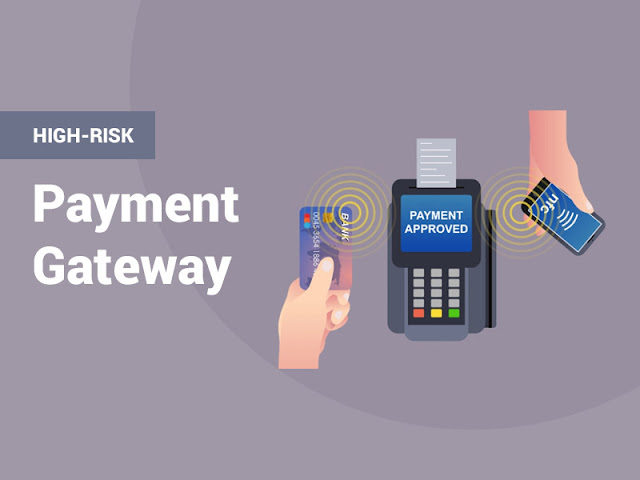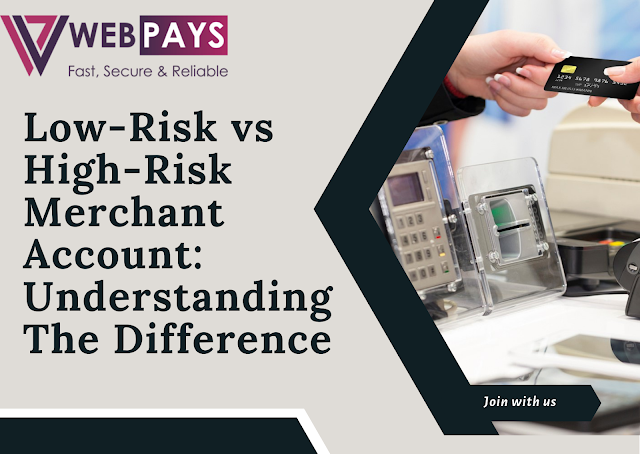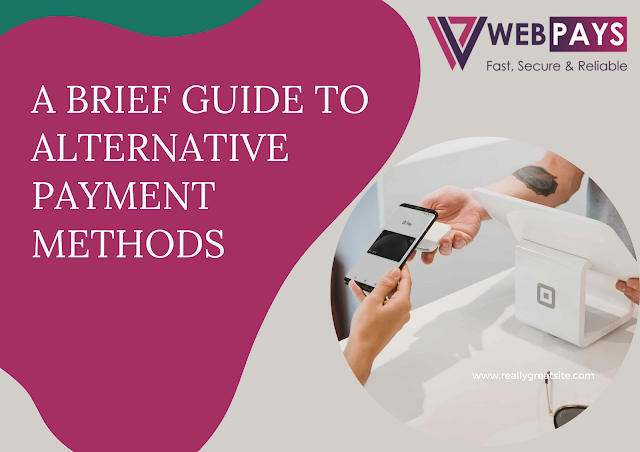Decoding High-Risk Payment Processing: Challenges and Solutions
You have established a successful business by pouring your heart
and soul into it. your product or service is in high demand, and customers are
eager to buy. But when it comes to accepting payments, you hit a brick wall.
Traditional payment processors keep declining your application, leaving you
frustrated and confused. This scenario is all too real for many businesses
classified as "high-risk" merchants. These businesses face an uphill
battle when it comes to securing secure and reliable payment processing
solutions. The consequences? Lost sales, unhappy customers, and a significant
strain on your ability to grow.
In this blog post, we will today decode the world of high risk payment
processing including the challenges faced by these businesses and, more
importantly, look at the solutions that can unlock your full potential. So get
your coffee cup and ready to read for some valuable insights.
Understanding High-Risk Merchants: Why Your
Business Might Be Flagged?
Not all businesses are created equal in the eyes of traditional
payment processors. Some, unfortunately,
fall under the category of "high-risk" merchants. This classification
can feel like a scarlet letter, hindering your ability to accept payments and
grow your business. So, what exactly defines a "high-risk" merchant?
There's no single answer, but several factors can contribute to this label.
Here are some key considerations:
➔ Industry Type: Certain industries are
inherently considered high-risk due to a higher statistical likelihood of fraud
or chargebacks. This might include businesses selling CBD products, travel
services with potential for cancellations, or adult entertainment content.
➔ Chargeback Rates: If a significant portion of
your customers dispute transactions (chargebacks), it raises red flags for
processors.
➔ Business Model: Businesses with
subscription models, recurring billing, or intangible products may be viewed as
posing a higher risk.
➔ Credit History: A limited business credit
history or a history of payment processing issues can also affect your
classification.
Challenges
of High-Risk Payment Processing:
Being classified as a high-risk merchant can feel like running a
marathon with one leg tied behind your back. Here's why:
1.
Obtaining
a Merchant Account
Traditional payment processors are often hesitant to approve
merchant accounts for high-risk businesses. Their stringent application
processes and risk-averse nature can lead to frequent rejections, leaving you
frustrated and with limited options.
2.
The
High Cost of Limited Payment Options
Without proper payment processing, you are essentially limiting
yourself to cash or unreliable methods. This translates to lost sales, as
customers increasingly prefer the convenience and security of digital payments.
Additionally, the limited options can damage your reputation and brand image,
making you appear less trustworthy to potential customers.
3.
The
Price of Being High-Risk
Even if you manage to secure a merchant account as a high-risk
business, be prepared for higher processing fees compared to low-risk
merchants. These fees can eat significantly into your profits and hinder your
ability to scale your business effectively.
4.
Stricter
Requirements
High-risk businesses may face stricter security requirements
from payment processors. This could involve additional verification steps,
fraud prevention measures, and compliance with data security regulations. While
these measures are important, they can add complexity and additional costs to
your operations.
What
Are The Solutions For High-Risk Businesses?
Just because you are defined as a high-risk merchant does not
mean you are made to struggle with limited payment options. There's hope! Below are some high risk payment processing
solutions for your business.
Understanding
Your Industry
Unlike traditional processors with a one-size-fits-all approach,
high-risk processors specialize in understanding the unique needs and
challenges of businesses like yours.
They have experience working with your specific industry and can
navigate the risk factors associated with it.
Look For The Alternative Payment Methods
High-risk processors often offer a wider range of payment
methods beyond just credit cards. This could include options like ACH payments,
e-wallets, or even cryptocurrency, allowing you to cater to a broader customer
base and increase your sales potential.
Approval
Assistance
High-risk processors understand the intricacies of navigating
the application process. They can offer
guidance and support to ensure your application is presented in the most
favorable light, increasing your chances of approval.
Competitive
Fees
While high-risk processing fees might be higher than traditional
options, specialized providers often offer more competitive rates compared to
traditional processors for high-risk businesses. This can help you manage costs
effectively and maintain healthy profit margins.
Choosing
The Right High-Risk Payment Processor
Finding the best payment
processor is like finding a trusted business partner. They will play a
vital role in your success, so choose wisely! Below are some key factors to
consider:
Industry Expertise: Select a processor with a proven track record
of success in your specific industry.
They will understand the unique challenges you face and offer solutions
personalized to your needs.
Reputation Matters:
Research the processor's reputation online and within your industry. Look for
positive customer reviews and testimonials that highlight their reliability,
customer service, and effectiveness.
Security Above All Else: High risk payment processing demands
robust security measures. Ensure the processor utilizes industry-standard
encryption protocols, fraud prevention tools, and PCI compliance to protect
your customer data and your business.
Responsive Customer Support:
Inevitably, questions or issues may arise. Choose a processor known for
responsive and helpful customer support. Look for multiple channels for
support, such as phone, email, and live chat.
Fees & Contracts:
Carefully review the processor's fee structure, including monthly charges,
transaction fees, and any potential chargeback fees. Read the contract
thoroughly, paying close attention to termination clauses and any early exit
penalties.
Considering a Payment
Processing Expert: The high risk payment processing landscape can be complex. Consulting
with a payment processing expert can be a wise investment. They can help you
navigate the options, compare different processors, and ensure you find the
solution that best fits your business needs and budget.
Conclusion
Being a high-risk merchant does not have to mean struggling with
limited payment options. We have explored the challenges you face, from
application rejections to limited payment methods and potentially high
processing fees. But remember, there's hope! High risk merchant solutions exist, offering a lifeline for your
business. Specialized processors
understand your industry, provide a wider range of payment methods, and can
assist with application approval. They offer competitive fees, industry-specific
features, and the security measures needed to protect your business and your
customers.




Comments
Post a Comment